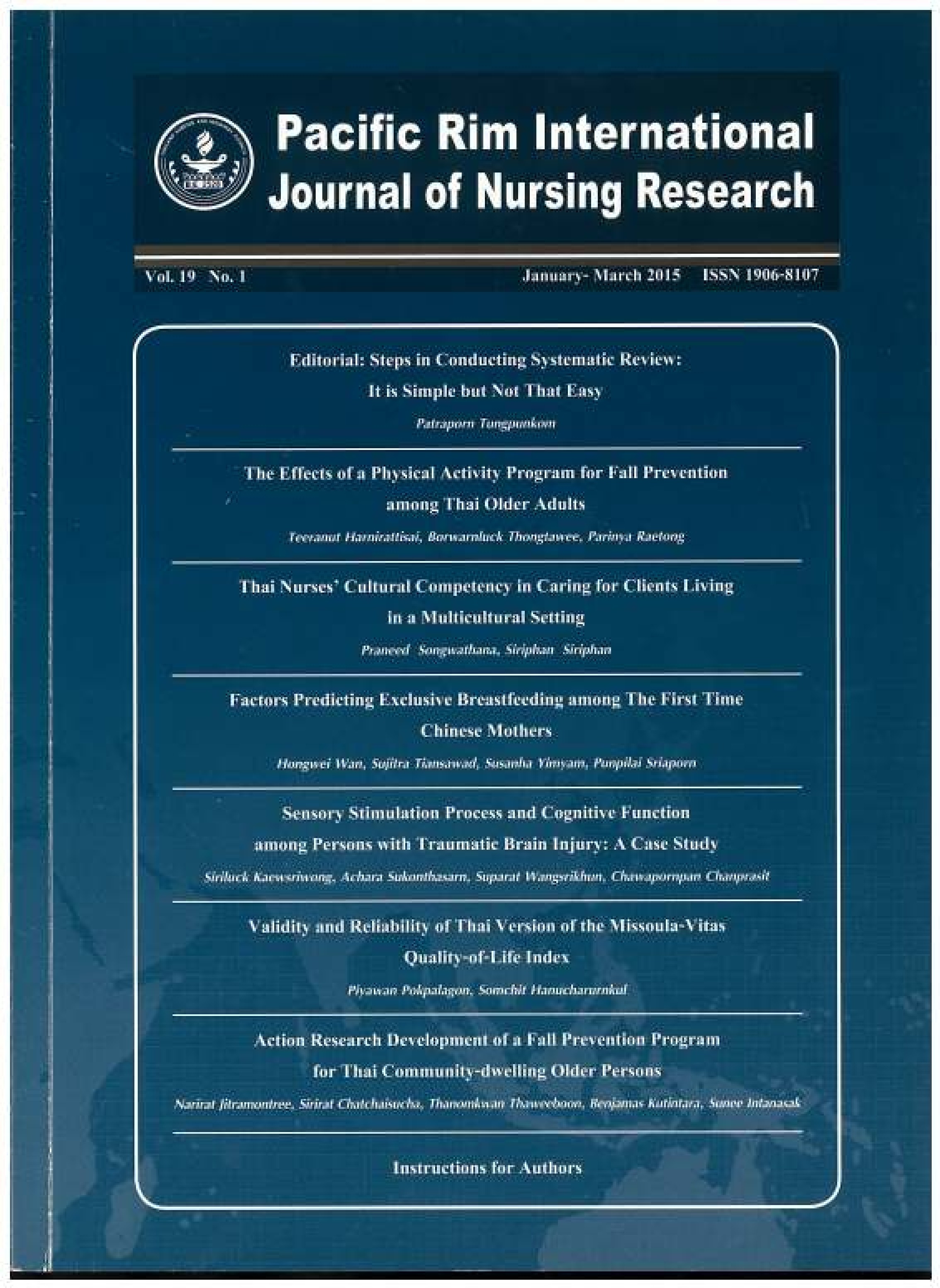Factors Predicting Exclusive Breastfeeding among The First Time Chinese Mothers
Keywords:
Breastfeeding, exclusive breastfeeding, First-time mothers, Predicting factors, Theory of Planned BehaviorAbstract
This study examined the factors that predict exclusive breastfeeding at 4 months and 6 months among the first-time Chinese mothers. Based on the theory of planned behavior, a descriptive and correlational research design was utilized. A systematic random sampling method was applied and a total of 272 first-time Chinese mothers who gave birth at a hospital in Shanghai were recruited. Three instruments, the Breastfeeding Attrition Prediction Tool, the Breastfeeding Knowledge Scale, and a Demographic Questionnaire were used to measure breastfeeding knowledge, attitude, subjective norm, perceived control, and breastfeeding practice. The data were analyzed using descriptive statistics, Point-biserial, Pearson’s product moment correlation, and Logistic regression analysis.
Results revealed that the breastfeeding initiation rate was 93.75%, but exclusive breastfeeding rates at 4 months and 6 months had reduced to 34.19% and 3.31%, respectively.There were significant positive relationships between exclusive breastfeeding at 4 months and breastfeeding knowledge, attitude, subjective norm, and perceived breastfeeding control.A negative relationship was found between exclusive breastfeeding at 4 months and working status. A logistic regression analysis indicated that all of five breastfeeding factors could significantly predict exclusive breastfeeding at 4 months. The implication of this study to nursing practice lies in that nurses should provide enough breastfeeding knowledge,encourage new mothers’ positive breastfeeding attitude, change their significant others,and strengthen their breastfeeding control.
Downloads
Published
How to Cite
Issue
Section
License
Copyright: The Pacific Rim International Journal of Nursing Research, Thailand Nursing & Midwifery Council has exclusive rights to publish, reproduce and distribute the manuscript and all contents therein.








.png)



